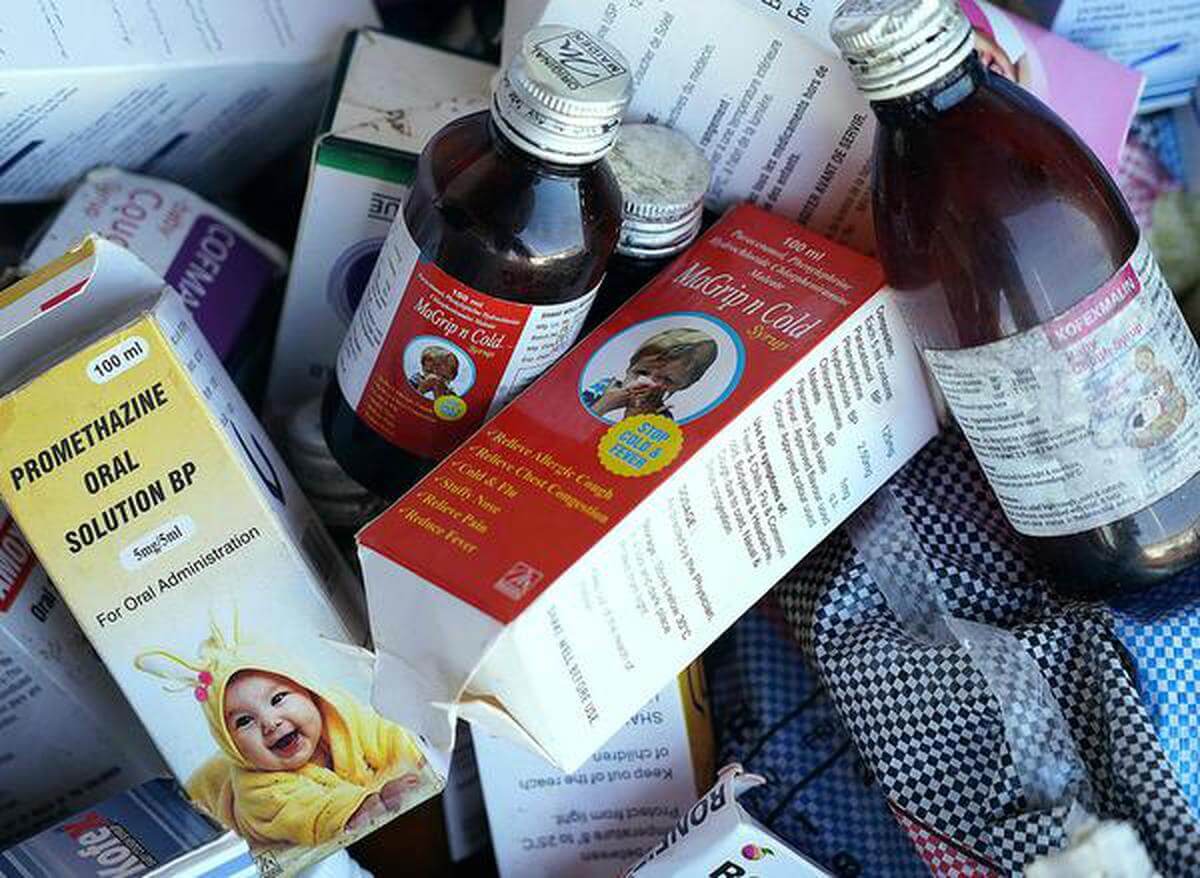Indonesia on Wednesday announced a ban on all syrup and liquid medication, including prescription and over-the-counter sales, after almost 100 children died from acute kidney injury (AKI) this year.
“Until today, we have received 206 reported cases from 20 provinces with 99 deaths,” the health ministry’s spokesperson, Syahril Mansyur, told the press. “As a precaution, the ministry has asked all health workers in health facilities not to prescribe liquid medicine or syrup temporarily... we also asked drug stores to temporarily stop non-prescription liquid medicine or syrup sales until the investigation is completed,” he declared.
2. "Since late August 2022, the ministry and pediatrician association have received increasing reports of acute kidney injury. The jump is sharp," Indonesia's Health Ministry spokesperson Syahril Mansyur said.
— BFM News (@NewsBFM) October 20, 2022
Most of the cases are below 18 years old, mainly toddlers under 5.
The ban comes after multiple AKI cases in January and another unexplained spike in cases since late August, following which, Jakarta launched a probe into the situation. “Since late August 2022, the ministry and the paediatrician association have received increasing reports of acute kidney injury. The jump is sharp,” the spokesperson noted.
The ministry added that most of Indonesia’s cases involved children aged under 18, mainly toddlers under five years old. Prior to the recent surge, typically one or two cases of AKI were being reported in a month.
Indonesia’s move comes shortly after the World Health Organisation (WHO) the death of at least 69 children from AKI in the Gambia. The WHO issued an alert saying four “substandard” cough syrups manufactured by India-based Maiden Pharmaceuticals Ltd. were responsible for the deaths of dozens of Gambian children.
1. India has halted the production of cough syrup at a Maiden Pharmaceuticals factory, after a WHO report showed the medicine may be linked to the deaths of 69 children in Gambia.
— BFM News (@NewsBFM) October 13, 2022
An inspection of the factory found 12 violations of good practices. https://t.co/2vYpkVxVmd
The world body stated that four Indian products—Promethazine Oral Solution, Kofexmalin Baby Cough Syrup, Makoff Baby Cough Syrup, and Magrip N Cold Syrup—had “unacceptable amounts of diethylene glycol and ethylene glycol as contaminants,” which have “toxic effects.” It noted that the children died days after consuming the products.
Following the news, India suspended production at Maiden Pharmaceuticals Ltd.’s main factory in Haryana. Haryana’s health minister, Anil Vij, said four inspections conducted this month had found 12 “flaws” and various “deficiencies.”
Medicines produced in India now are known for their quality in int'l market, it's wrong to question quality of Indian medicines because of one incident. Our regulatory body is strong & we've zero tolerance for such things: Dr YK Gupta, Vice-Chairman, Standing National Committee
— ANI (@ANI) October 8, 2022
Indonesia initially only issued a ban on products containing the aforementioned chemicals. However, it soon imposed a blanket ban on all syrups and liquid medicines until it concludes its investigations.
Indonesia’s Drug and Food Supervisory Agency (BPOM) has clarified that the syrups in question in the Gambia are not sold in Indonesia. However, Health Minister Budi Gunadi Sadikin said on Thursday that ethylene glycol and diethylene glycol—chemicals that are found in products such as antifreeze, paints, plastics, and cosmetics—have been found in syrups consumed by some child patients in the country.
BREAKING: #BNNIndonesia Reports
— Gurbaksh Singh Chahal (@gchahal) October 21, 2022
Following the deaths of nearly 100 children, Indonesia prohibited the sale of any syrup or liquid medication.
Some syrup medicines were discovered to contain ingredients linked to acute kidney injuries, according to health officials. pic.twitter.com/62KBg4aVRR
The BPOM announced that it had carried out sampling tests on 26 syrups and found traces of EG and DEG in five samples, all of which are manufactured by Indonesian companies—Termorex Sirup by Konimex, Flurin DMP Sirup by Yarindo Farmatama, and Unibebi Cough Sirup, Unibebi Demam Sirup, and Unibebi Demam Drops by Universal Pharmaceutical Industries.
Despite the recall, the BPOM admitted that it has not yet concluded that the deaths are directly linked to the syrup medicines. “There are a number of risk factors that may cause AKIs such as viral infection, leptospirosis, and Multisystem Inflammatory Syndrome in Children linked to COVID-19,” it said.

